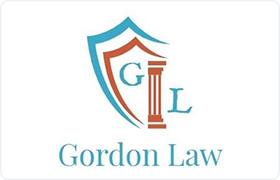High Shoals Criminal Lawyer, North Carolina
Sponsored Law Firm
-
 x
x

Click For More Info:
-
The Law Offices of Andrew L. Gordon, PLLC.
725 E. Trade Street Suite 205 Charlotte, NC 28202» view mapCriminal Defense Law Fighting For Your Rights
Everyone knows that the law is not a simple topic. But when you meet with a Gordon Law attorney, the confusion will clear up before you know it.
800-941-2360
FREE CONSULTATION
CONTACTJennifer Mcilmail Hames
Traffic, Divorce & Family Law, Criminal
Status: In Good Standing Licensed: 16 Years
Blair Macfarland Pettis
Juvenile Law, Social Security, Family Law, Criminal
Status: Suspended Licensed: 17 Years
 Andrew Gordon Charlotte, NC
Andrew Gordon Charlotte, NC Practice AreasExpertise
Practice AreasExpertise
